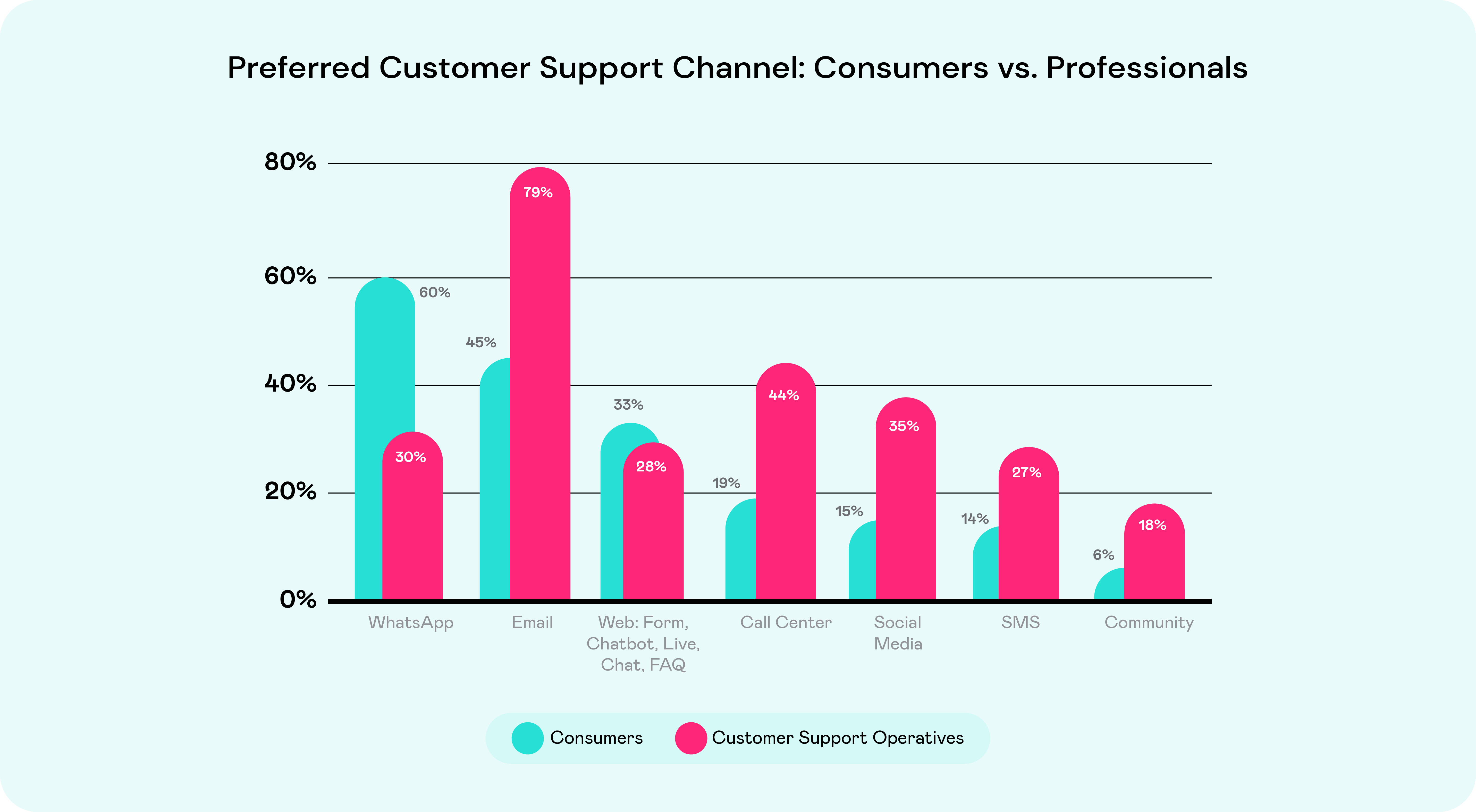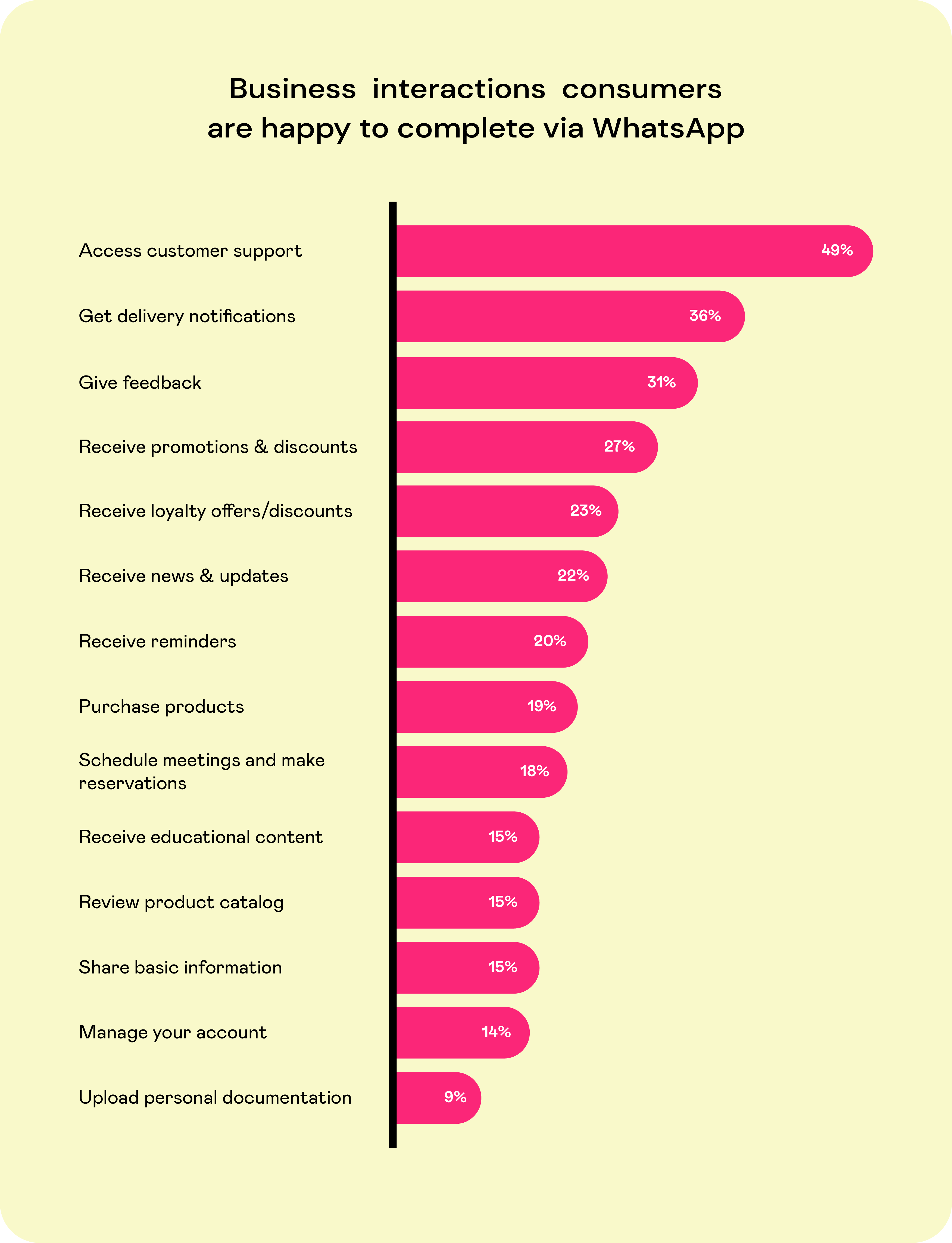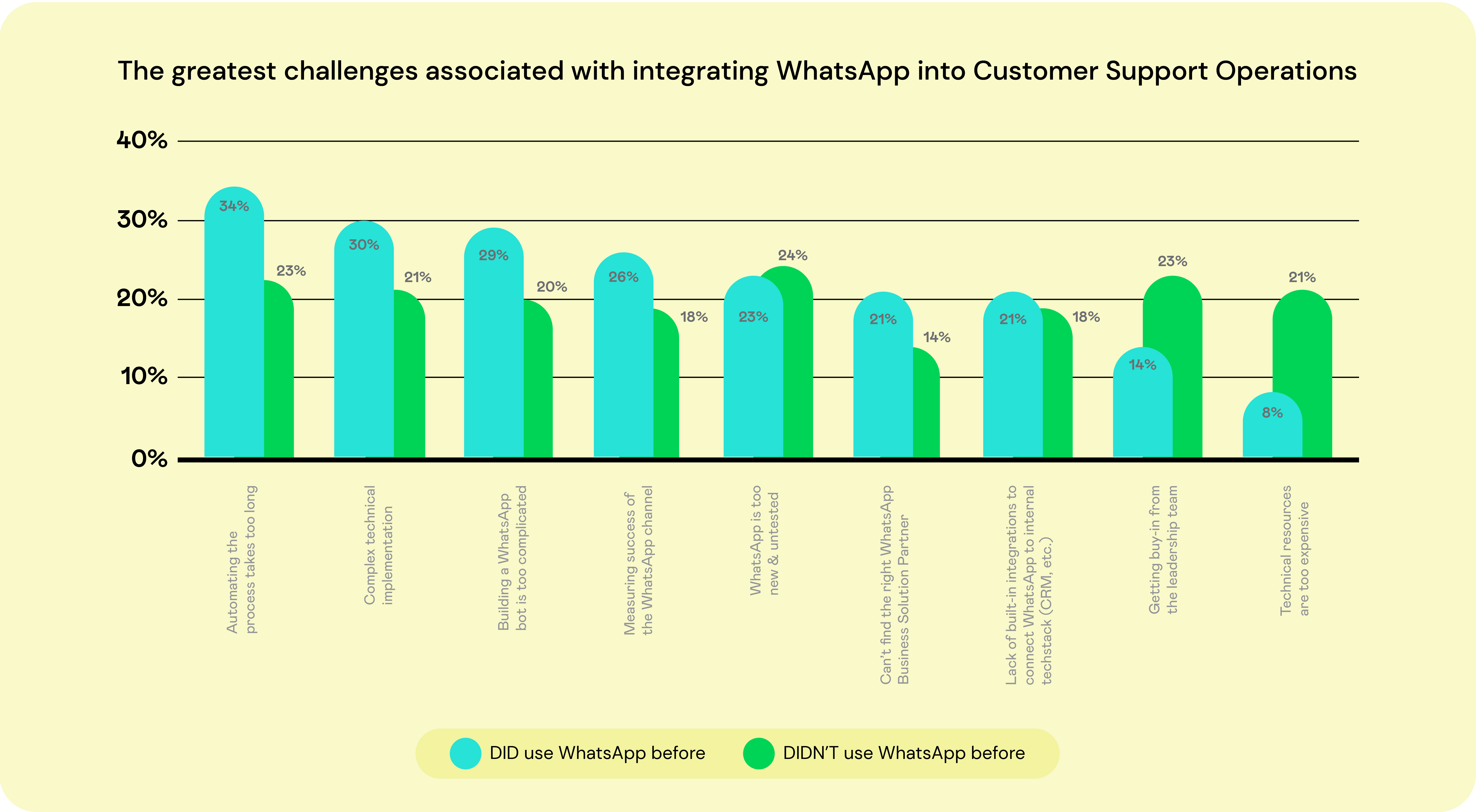The Future of WhatsApp Automation in Creating Frictionless Conversational Experiences
Marketers and customers service departments find the future of WhatsApp Automation extremely fertile. The rise of ChatGPT3-like tools have made it simple to integrate WhatsApp automation tools to existing business communication stacks. According to a recent report from Landbot, WhatsApp is the up-and-coming communication channel for businesses. After surveying over 600 marketing, and customer support professionals, as well as consumers, in the US, the UK, Mexico, Spain, and Germany, Landbot concludes that WhatsApp is key to bridging the gap between consumer expectations and reality when it comes to conversational automation. The report clearly identifies the opportunities, possibilities and potential barriers in adopting WhatsApp automation for conversational experience management across marketing, sales and customer service.
Here are the five key takeaways from the recent Landbot report on WhatsApp automation for businesses.
Consumers and Marketers have Distinct Preferences when it comes to Choosing WhatsApp for Communication

Consumers expect a frictionless experience from end-to-end, and most of them prefer for this experience to take place on WhatsApp: 60% prefer to use it for customer support, while 40% are open to receiving marketing content such as newsletters or discounts on the messaging app.
However, on the professionals’ side, only 31% of customer service operatives claimed to currently use WhatsApp for support operations and 29% of marketers have integrated the channel into their marketing strategies.
“We are witnessing a historic moment in the realm of conversational automation. The release of ChatGPT and other Large Language Models powered by AI only set the bar higher when it comes to meeting consumer expectations across the customer journey. I’m using the term ‘WhatsApp Led Growth’ to describe this phenomenon. The concept encompasses all the possible ways companies can leverage WhatsApp as the core channel to acquire, engage, and monetize conversational experiences with customers.” – Jiaqi Pan, CEO and Founder of Landbot.
Consumers Prefer WhatsApp for Contacting Customer Care Centers and Seeking Product Information
WhatsApp quickly scaled as an instant messaging app for both iOS and Android users, garnering over 5 billion downloads within a decade of launch. Today, India is WhatsApp’s biggest market in terms of regular active monthly users.

Landbot found WhatsApp is very popular among consumers who use this mobile app to access customer support (49%), get delivery notifications (39%), provide feedback (36%), and receive information content in the form of news, and updates (22%).
Complex Integrations and Process Management Create Barriers in WhatsApp Automation

Despite marketing and customer service teams managing different parts of the customer journey, their top challenges coincide when it comes to WhatsApp automation. From the marketers’ perspective, 23% consider automation complexity as a roadblock, and 35% believe it takes too long to implement. As for customer support professionals, 21% think the automation process is too complex and another 21% claim the time-to-implementation takes too long.
Limited Budget Risk WhatsApp-centric Processes in Customer Service and Lead Generation
According to the Landbot report, lead gen and marketing teams blamed limited budget for failing to move ahead with WhatsApp integration in their campaigns. 18% of the respondents felt WhatsApp delivers quality of leads while 8% found it hard to track ROI and attribute leads to WhatsApp tools. Complex integrations with APIs and newness to WhatsApp conversational automation also add to ROI risks in the domain.
Thankfully, no-code automation and AI capabilities are now available to solve some of these glaring problems faced by marketing and customer service teams looking to build their conversation automation with WhatsApp.
Role of AI and Machine Learning in Accelerating Improving WhatsApp Communication
The emergence of the GPT-3 and other Large Language Models holds the potential to drastically reduce these concerns. Combining the power of no-code chatbot builders—like Landbot—and other Large Language models is already allowing businesses to experiment with AI, integrating these supporting elements within automated WhatsApp conversations.
How to Include WhatsApp Automation in your Business Communication
As marketing strategies continue to evolve and double down their investments into AI and machine learning tools, it is a sensible option to rely on a Business Solution Partner (BSP) for WhatsApp automation. A BSP would enable you to identify various challenges in your roadmap to integration and adoption. Eventually, the flair at which these platforms bring in No-code and low-code tools for integration and clamp up with AI applications, marketing teams can quickly scale their strategies with ROI-centric results. In your journey with WhatsApp conversation automation, GPT3-based chatbots would play a key enabler. Landbot’s report identifies ChatGPT3 as a filler and catalyst in meeting expectations with reality.
Landbot.io is a no-code chatbot platform that empowers businesses to build frictionless conversational experiences from end-to-end. Turning conversations into profitable outcomes, Landbot helps Marketing, Operations, and Customer Service teams triple their efficiency and cut operating costs by 30% or more. Whether it’s for WhatsApp, Web, or Messenger, anyone can create automated chatbot flows to better engage customers and increase conversion rates. Landbot is also leveraging recent advancements in AI and GPT-3 to help make the chatbot building experience even more accessible, combining the no-code capabilities of Landbot with other LLMs.








Comments are closed.